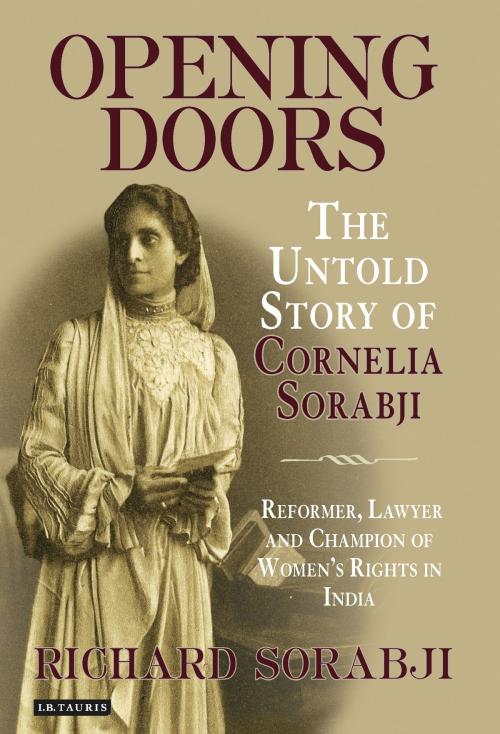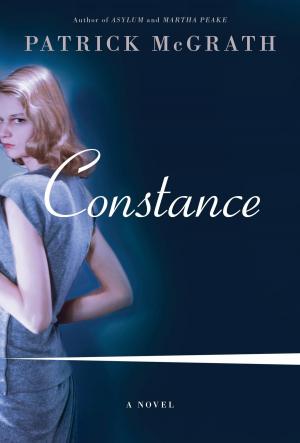Opening Doors
The Untold Story of Cornelia Sorabji, Reformer, Lawyer and Champion of Women's Rights in India
Nonfiction, Reference & Language, Law, Biography & Memoir, History| Author: | Sir Richard Sorabji | ISBN: | 9780857731883 |
| Publisher: | Bloomsbury Publishing | Publication: | May 30, 2010 |
| Imprint: | I.B. Tauris | Language: | English |
| Author: | Sir Richard Sorabji |
| ISBN: | 9780857731883 |
| Publisher: | Bloomsbury Publishing |
| Publication: | May 30, 2010 |
| Imprint: | I.B. Tauris |
| Language: | English |
Clever, attractive and ambitious, intellectually daring and physically courageous, Cornelia Sorabji was a truly remarkable woman. As India's first female lawyer, she was original and often outspoken in her views - for example, in her criticism of Gandhi and her surprising friendship with Katherine Mayo. Cornelia Sorabji resists easy classification, either as a feminist or as an imperialist.
An Indian whose loyalty to the British Raj never wavered. A passionate advocate of women's rights whose own career was nearly compromised through her inappropriate relationship with a married man. An independent and free-thinking intellectual who depended for work on patronage from an élite circle. Cornelia Sorabji's long and fulfilling life was anything but simple. How did she reconcile these apparent contradictions? How did she succeed in opening doors to aspects of Indian and British life which remain closed to so many, even today - and where did she run into difficulties?
One of nine children born to a Christian Parsi family, Cornelia won a scholarship from her school in India to Oxford University in 1889 where she read first English literature and then - her lifelong passion - law. This was a unique achievement for a woman of that period, made possible only through the intervention and sponsorship of some important champions in England, galvanised by a campaign in The Times. She moved in the most elevated circles and was a particular favourite of the Classicist, Benjamin Jowett, who perceptively commented that her role would be 'to interpret east to west'. She flourished, both academically and socially, and relished the challenges of training and practising as a lawyer, both in England and India, against all the odds. However, after returning to India to work alongside her brother, she put all her many achievements in jeopardy through a scandalous affair with a much older, Scottish High Court judge.
Persuaded by her concerned family to end the affair and return to England, she entered into a long struggle with the British authorities to create a role suitable to her unique skills. She eventually succeeded and returned to India in 1904 where she embarked on the outstanding achievement of her life - and her greatest challenge. As legal adviser to the British government, Cornelia had special responsibility for the women and children trapped by marriage, widowhood and divorce, who were theoretically under the protection of the British court but whose interests had hitherto been unrepresented. Cornelia showed remarkable sensitivity and empathy in unravelling often complex cases, even affecting several dramatic and dangerous rescue missions. This exceptional commitment and dedication extended to all aspects of her life, not only her legal and social work on behalf of the purdahnashins but also her writing - from which she earned a much needed supplementary income - and her personal life.
Through its beguiling portrait of a determined and pioneering woman at the heart of the Raj, this rich and important story will captivate everyone with an interest in Indian or British history.
Clever, attractive and ambitious, intellectually daring and physically courageous, Cornelia Sorabji was a truly remarkable woman. As India's first female lawyer, she was original and often outspoken in her views - for example, in her criticism of Gandhi and her surprising friendship with Katherine Mayo. Cornelia Sorabji resists easy classification, either as a feminist or as an imperialist.
An Indian whose loyalty to the British Raj never wavered. A passionate advocate of women's rights whose own career was nearly compromised through her inappropriate relationship with a married man. An independent and free-thinking intellectual who depended for work on patronage from an élite circle. Cornelia Sorabji's long and fulfilling life was anything but simple. How did she reconcile these apparent contradictions? How did she succeed in opening doors to aspects of Indian and British life which remain closed to so many, even today - and where did she run into difficulties?
One of nine children born to a Christian Parsi family, Cornelia won a scholarship from her school in India to Oxford University in 1889 where she read first English literature and then - her lifelong passion - law. This was a unique achievement for a woman of that period, made possible only through the intervention and sponsorship of some important champions in England, galvanised by a campaign in The Times. She moved in the most elevated circles and was a particular favourite of the Classicist, Benjamin Jowett, who perceptively commented that her role would be 'to interpret east to west'. She flourished, both academically and socially, and relished the challenges of training and practising as a lawyer, both in England and India, against all the odds. However, after returning to India to work alongside her brother, she put all her many achievements in jeopardy through a scandalous affair with a much older, Scottish High Court judge.
Persuaded by her concerned family to end the affair and return to England, she entered into a long struggle with the British authorities to create a role suitable to her unique skills. She eventually succeeded and returned to India in 1904 where she embarked on the outstanding achievement of her life - and her greatest challenge. As legal adviser to the British government, Cornelia had special responsibility for the women and children trapped by marriage, widowhood and divorce, who were theoretically under the protection of the British court but whose interests had hitherto been unrepresented. Cornelia showed remarkable sensitivity and empathy in unravelling often complex cases, even affecting several dramatic and dangerous rescue missions. This exceptional commitment and dedication extended to all aspects of her life, not only her legal and social work on behalf of the purdahnashins but also her writing - from which she earned a much needed supplementary income - and her personal life.
Through its beguiling portrait of a determined and pioneering woman at the heart of the Raj, this rich and important story will captivate everyone with an interest in Indian or British history.















